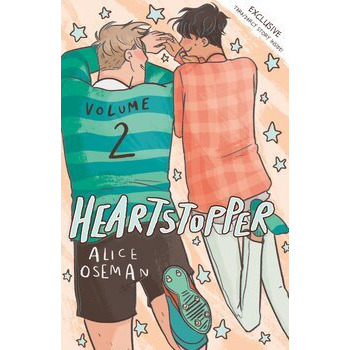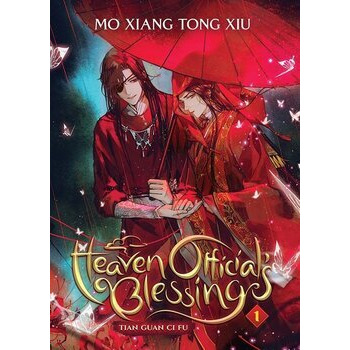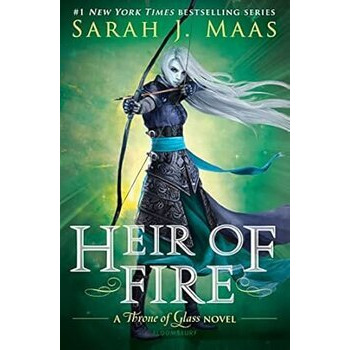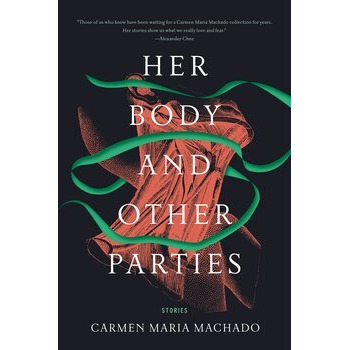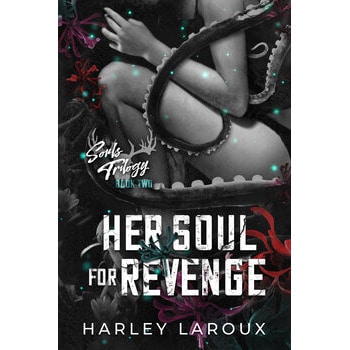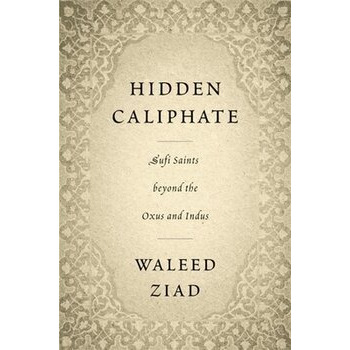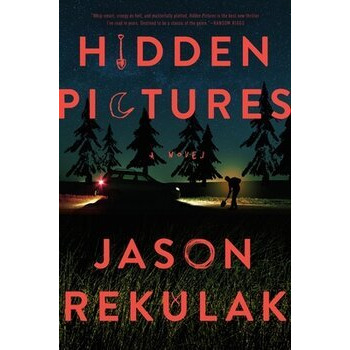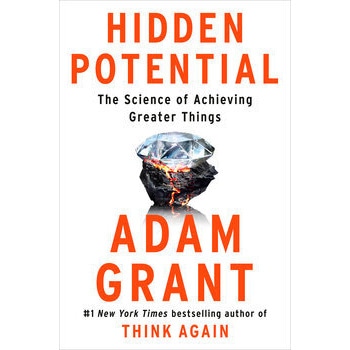Heartstopper Volume Two
Heartstopper Volume Two by Alice Oseman picks up where the first volume left off, continuing the sweet and heartfelt story of Nick and Charlie. As their friendship blossoms into something more, both characters navigate the complexities of their feelings, with Nick coming to terms with his bisexuality and Charlie dealing with the lingering effects of bullying. This volume delves deeper into their developing relationship, highlighting themes of self-discovery, acceptance, and the importance of trust. With its relatable characters and touching moments, Heartstopper Volume Two captures the beauty of young love and the support needed to face life's challenges together.
Heaven
Heaven by Mieko Kawakami is a novel that explores the inner life of a young boy who is relentlessly bullied at school. The story is told from his perspective, offering a poignant look at the pain and isolation of adolescence. The boy forms an unlikely bond with a girl in his class, who is also an outcast. Together, they seek meaning and solace in a world that seems indifferent to their suffering. The novel delves deeply into themes of loneliness, identity, and the desire for connection, while also examining the cruelty of bullying and the emotional scars it leaves behind. Kawakami's writing is both raw and introspective, capturing the complexities of youth and the longing for escape.
Heaven Official’s Blessing
Heaven Official's Blessing by Mò Xiāng Tóng Xiù is a captivating Chinese fantasy novel that blends romance, adventure, and elements of traditional mythology. The story follows Xie Lian, a former prince who has been exiled and is now a forgotten, fallen god. He is unexpectedly drawn into a series of mysterious events involving powerful beings from the heavens and the underworld. Along the way, Xie Lian forms a deep, complex relationship with the enigmatic and powerful god, Hua Cheng. Filled with rich world-building, intricate plot twists, and emotional depth, Heaven Official's Blessing explores themes of love, redemption, and the nature of divinity. The novel has gained widespread popularity for its engaging characters and dramatic, supernatural elements.
Heir of Fire
"Heir of Fire" by Sarah J. Maas is the third book in the "Throne of Glass" series, following the journey of Aelin Galathynius as she embraces her identity as the rightful queen of Terrasen. The story takes Aelin to the land of Wendlyn, where she seeks to hone her magical abilities and confront her past. Here, she encounters new allies and formidable foes, including the enigmatic fae warrior Rowan Whitethorn, who becomes a crucial part of her journey. As the narrative unfolds, themes of identity, power, and sacrifice are explored, revealing the complexities of Aelin’s character and her destiny. With intense action, rich world-building, and emotional depth, "Heir of Fire" propels the series into darker and more intricate territory, setting the stage for the challenges to come.
Helping Autistic Teens to Manage Their Anxiety
Helping Autistic Teens to Manage Their Anxiety by Theresa Kidd is a practical guide designed to support autistic teenagers in understanding and coping with anxiety. Using evidence-based strategies, the book provides exercises, real-life examples, and step-by-step techniques to help teens recognize triggers, develop emotional regulation skills, and build confidence. It also offers guidance for parents, teachers, and therapists to create supportive environments that reduce stress and encourage resilience. This resource is ideal for those looking to empower autistic teens with tools to manage anxiety effectively.
Her Body and Other Parties
Her Body and Other Parties by Carmen Maria Machado is a mesmerizing collection of feminist, genre-bending short stories that blend horror, fantasy, and psychological realism to explore themes of desire, body autonomy, and the female experience. Each story is haunting and inventive, from the eerie "The Husband Stitch," a modern retelling of a classic urban legend, to "Especially Heinous," a surreal reimagining of Law & Order: SVU. Machado’s lyrical prose and darkly imaginative storytelling create a powerful, unsettling, and deeply thought-provoking reading experience. This collection challenges societal norms and expectations, making it a must-read for those who appreciate literary fiction with a speculative edge.
Her Soul for Revenge
Her Soul for Revenge by Harley Laroux is a dark, intense, and suspenseful contemporary romance that delves into themes of vengeance, power dynamics, and personal transformation. The story follows a woman who embarks on a quest for revenge after experiencing deep personal loss and betrayal. As she navigates her mission, she finds herself drawn into a dangerous and complex relationship with a man who is equally entangled in the underworld of vengeance and desire. The novel is known for its dark, erotic elements, exploring the boundaries between love and hate, as well as the consequences of seeking retribution. Laroux's writing is atmospheric and intense, with emotional and psychological depth, creating a gripping narrative about healing, revenge, and the complexities of the human heart. Her Soul for Revenge is best suited for readers who enjoy dark romance with complex characters and morally ambiguous situations.
Her Soul to Take
Her Soul to Take by Harley Laroux is a dark romance novel that blends elements of erotic fiction with psychological thriller themes. The story follows a deeply intense and complex relationship between the protagonist, a woman grappling with her inner demons, and a mysterious man with his secrets. As the plot unfolds, the characters’ connection deepens into a dangerous, obsessive romance filled with twists, tension, and emotional conflict. The book explores themes of control, power dynamics, and personal redemption while delving into the darker aspects of desire and attraction. Her Soul to Take is a provocative and gripping read for fans of dark romance and complex, morally gray characters.
Hidden Caliphate
*Hidden Caliphate: The Secret History of the Rise of ISIS* by Waleed Ziad is a detailed and thought-provoking analysis of the origins and rise of ISIS, focusing on the complex historical, political, and social factors that contributed to the group's emergence. Ziad explores the hidden dynamics and key figures involved in the creation of the Islamic State, tracing its roots not just to the more recent conflicts in Iraq and Syria, but also to earlier ideological movements and regional power struggles. The book delves into the intellectual and theological underpinnings of ISIS, examining how the group's leaders, including Abu Bakr al-Baghdadi, crafted a narrative of religious and political legitimacy that appealed to both followers and sympathizers. Ziad's work provides a nuanced look at the rise of one of the most infamous terrorist organizations in modern history, offering a deeper understanding of the political and cultural forces that enabled its growth and its devastating impact on the Middle East and beyond.
Hidden Pictures
"Hidden Pictures" by Jason Rekulak is a gripping psychological thriller that follows the story of a young babysitter named Mallory who takes a job caring for a boy named Teddy, the son of a wealthy couple. As Mallory begins to connect with Teddy, she discovers that he has a talent for drawing eerie, unsettling images that seem to reflect dark events and secrets. The narrative intertwines themes of childhood innocence, trauma, and the complexities of human relationships, as Mallory becomes increasingly drawn into the mystery surrounding Teddy's drawings and the unsettling events that unfold. With its atmospheric tension and surprising twists, "Hidden Pictures" keeps readers on the edge of their seats, exploring the fine line between imagination and reality.
Hidden Potential
Hidden Potential by Adam M. Grant explores the idea that people often have untapped abilities and talents that can be unlocked through the right mindset and circumstances. Grant argues that success isn’t just about inherent talent but also about harnessing potential through resilience, effort, and the right opportunities. Drawing on psychology and real-life examples, the book provides insights into how individuals can discover their strengths, overcome challenges, and cultivate growth in both their personal and professional lives. Hidden Potential serves as a motivational guide, encouraging readers to tap into their capacities and reframe their approach to success.
Hidden Treasure
Hidden Treasure: A Map to the Child’s Inner Self by Violet Oaklander is a practical guide for therapists, educators, and parents on using Gestalt therapy techniques to help children express their emotions and develop self-awareness. Building on her previous work (Windows to Our Children), Oaklander provides creative exercises, case studies, and hands-on activities that encourage children to explore their feelings through play, art, storytelling, and movement.

